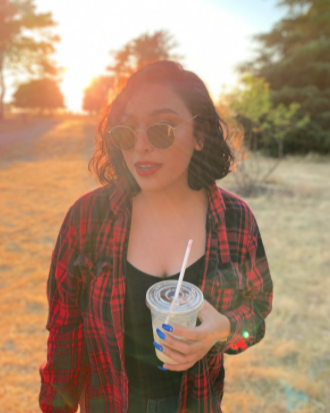Disclaimer: Before you read this blog, you may be triggered as it deals with depression and other mental illnesses.
First and foremost, I will say that this is not easy to write, and as a matter of fact, I don’t really know where to begin. I have dealt with anxiety since I could remember. I remember it started small, I was terrified to ask for ketchup at McDonald’s. While my initial social anxiety did not significantly hinder me, it developed into a nervousness, which made me feel helpless. While I did have social anxiety as a kid, digesting childhood traumas along with on going existing traumas left me in an unstable state.
My anxiety and depression worsened in high school. I would go to counseling and would try to do my best to practice the healthier coping mechanisms my counselors would teach me, but it never felt convincing to myself. However, my mental health was significantly more impacted my senior year of high school when I ran away. The only coping mechanism that truly worked for me and kept me together was writing. Setting all my stressors out and trying to figure out ways in which to minimize them felt helpful, but just simply writing them out first felt like a burden lifted from my shoulders. This method seemed to work until I got to college. The newness of it all excited me but broke me down to my core, the different rigor in school during my summer classes, political news threatening DACA, loss of friends, and an uncertain financial aid package from Cal was immensely overwhelming. The panic attacks, which initially started in middle school, were nothing compared to the ones I experienced alone in my dorm room during the summer of 2018.
I sought therapy, but Berkeley has a limited amount of five sessions of therapy per student, and if you are the rare case, they allow you to have up to eight sessions. The whole limitation and process was clearly not enough for me. I sought help with a psychiatrist, and explained I had sleeping problems due to my depression, which kept me up at night. She prescribed Trazodone and mentioned if it did not help she could prescribe me something else. The Trazodone did not really help, so she prescribed me Venlafaxine (Effexor XR) to treat my depression and anxiety. I was explained that Venlafaxine is an SSRI, and it was meant to increase the amount of serotonin and norepinephrine in my brain. The side effects had me all over the place and after a concussion brought on by a rear end collision, I stopped taking the drug. I stopped taking them as they were required to be taken with food, and I was far too nauseous to eat anything.
Once I finally recovered from the concussion, after not taking the drugs for so long I preferred not to take them simply because of how the side effects made me feel. However, I still continued to seek help and my therapist suggested starting a process to be enrolled in the disabled students program as it would benefit me. So this is where I’m at, but it doesn’t mean this is where my journey ends. Please take care of yourselves, in whichever way that may be for you.
Yendy Rebollo
Latest posts by Yendy Rebollo (see all)
- Ayudando a los Estudiantes a Través del Proceso de Solicitud de Ingreso a la Universidad - March 30, 2022
- Helping Students through their College Application Process - March 8, 2022
- Cómo fue mi Último Semestre de Otoño en UC Berkeley - March 1, 2022
- How my Last Fall Semester Went at UC Berkeley - February 25, 2022
- Cómo Trabajar en mi Salud Mental me Permitió Compartir mi Historia Contigo - October 15, 2021

